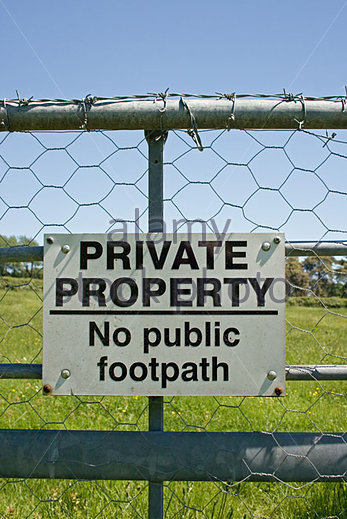
The Internet is almost undoubtedly the most expansive, impressive creation in the history of a humanity creating things.
It is a free speech-free market Xanadu.
Nothing has made easier the ability to speak and reach an audience. Steve Gutenberg and his printing press were revolutionary – the World Wide Web is exponentially more so.
Nothing has made the conducting of commerce more facile. Anyone selling anything has literally limitless opportunities to ply their wares online. Thousands of online marketplaces – and the ability to easily create one of your own.
But as with anything – especially anything this expansive – there are downsides alongside the up. One of the biggest – is the assault on all things property. The concept of someone owning something has taken a tremendous hit in the Digital Age.
It would appear human nature dictates we creatures place greater import on things tangible – than things intangible. We seem to elementally get things physical – far more readily than we do things conceived by and of the mind.
This is a fundamental flaw in our nature – especially in this…the Digital Age. We must ensure it not become a fatal one.
Because in the Digital Age – less and less things will be tangible. More and more things will be intangible. If we are to continue to survive and thrive – the tangible and intangible must be on equal legal and intellectual footing.
Today, you almost certainly do not have a giant metal file cabinet full of your papers. You instead have scanned these documents into a computer – or received them digitally in the first place – and your “papers” exist electronically.
But you certainly do not want government pretending the Fourth Amendment doesn’t apply equally to both storehouses:
“The right of the people to be secure in their persons, houses, papers, and effects, against unreasonable searches and seizures, shall not be violated, and no Warrants shall issue, but upon probable cause, supported by Oath or affirmation, and particularly describing the place to be searched, and the persons or things to be seized.”
Your “papers” – are your papers, regardless of their format. If you can print them – they’re your “papers.” Period.
It is this format hiccup that seems to throw so many. It is the content that matters – not the form or manner by which you acquire it. Your “papers” are your papers – because of what’s written on them…not on what it’s written.
And so it is with music, movies, computer software and the like.
Back before the Internet existed and/or was capable of digitally delivering these things – we acquired them in tangible fashion.
Music? We purchased vinyl records. Then eight-track tapes. Then cassette tapes. Then compact discs. The format wasn’t what you were purchasing – the content was. A vinyl flat platter, a fat eight-track, a tape or a digital disc – all of them were nothing but delivery devices for the content you wanted.
Movies? Ditto. It was VHS tapes. And Betamax tapes. Then laser discs of varying sizes. Format? Irrelevant. Content, as always, was king.
Computer programs? They were obviously later to the format party than music and movies. So they came in on flat plastic discs – similar to compact music and laser movie discs.
Then came the Internet. And now comes ever faster Internet – with ever expanding tubes through which ever expanding amounts of data can travel.
And the formats that were once tangible – have become almost exclusively intangible. Gone are records and tapes and discs – replaced all by digital downloads.
The content that was imprinted digitally on discs – and then “installed” on your computer – can now simply be imprinted in seconds directly upon your computer via a regular guy commercial Internet connection.
The incredible facility of this process – contributes mightily to the devaluation of the content so easily acquired.
People who never, EVER would have walked in to a Tower Records, a Blockbuster or an Office Depot and stolen the content they wanted – have no compunction illegally downloading that exact same content.
And that is simply, fundamentally wrong.
A quarter century into the Internet experience, we have reached this ridiculous point:
“The week my most recent film, ‘Every Day,’ was released in movie theaters, I noticed a comment posted on social media – ‘Looks amazing. Where can I download this for free?’
“The movie wasn’t even available yet as a paid download and still this person thought it completely reasonable that she should be able to access it for free.”
This filmmaker – this content creator – is Michael Sucsy. And his riposte to this anti-property nonsense – is brilliant:
“(I)t occurred to me that, in this get-it-now culture, she might not understand the consequences of downloading content this way, so I wrote her back. Here was my response:
“‘I’m sure you don’t realize this because downloading movies for free is so accessible and easy, but not paying for them hurts millions of people whose job it is to make movies and TV shows. You’re probably unaware of the financial damage you inflict on working people when you pirate content, but the harm caused by piracy is real.
“’The deepest damage done by illegal downloads isn’t to wealthy movie stars who are the faces of Hollywood, but rather to the millions of workers who never set foot on a red carpet, appear on camera, or find themselves on a magazine cover. You know the long list of names you see at the end of a movie? Those are the individuals you’re hurting the most when you download a movie for free.
“‘Film and television creation is our job, our livelihood, how we provide for our families. It allows us to put food on the table, pay our bills, and send our kids to school. Ticket sales and revenue generated from legal streaming fund our healthcare benefits and retirement plans. If you don’t pay to watch a movie, no portion of that can go to help us care for our loved ones.’”
Sure, when you digitally steal music, movies or computer programs – you’re taking a little chink out of rock and movies stars and big computer companies.
But you’re taking an enormous chunk out of millions of Little People – who can not live without a revenue stream for the work they create. That you preempt by instead stealing their work.
And those chinks and chunks – make future creation of content prohibitively less likely.
Human nature tells us if we raise taxes – we make work less likely. Because the less of the fruits of our labor we get to keep – the more of us will make the determination that work isn’t worth it.
Human nature also tells us if we allow theft of stuff – the people who make and have stuff will stop making it…and then making it available to us.
Why plant crops, then till and fertilize and water them – if everyone on the planet can freely help themselves once they come to fruition?
You would have to be an idiot to do all that work for nothing.
No one smart enough to create anything – is that stupid.
This shouldn’t be as difficult to grasp as it appears to be in this…the Digital Age:
Just because it’s exponentially easier to steal – doesn’t mean it isn’t stealing.
This first appeared in Red State.

